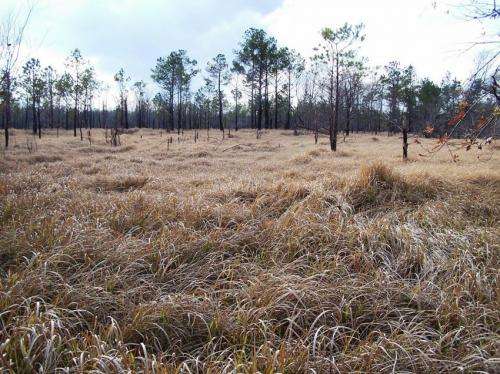Scientific team criticizes adoption of 'novel ecosystems' by policymakers

Embracing "novel" ecosystems is dangerous, according to a new study by an international team.
Novel ecosystems arise when human activities transform biological communities through species invasions and environmental change. They are seemingly ubiquitous, and thus many policymakers and ecologists argue for them to be accepted as the "new normal"—an idea the researchers say is a bad one.
In the study, published in the September edition of the academic journal Trends in Ecology and Evolution, the international team argues that adopting novel ecosystems is based on faulty, data-deficient assumptions and a catchy schematic figure, not on robust, empirically tested science.
"Novel ecosystems yield unintended and perverse outcomes, and the concept provides 'license to trash' or 'get-out-of-jail card' for companies seeking to fast-track environmental licenses or to avoid front-end investment in research and restoration," said Dan Simberloff, an ecology and evolutionary biology professor at the University of Tennessee, Knoxville. "The concept may even provide incentives to governments to continue to ignore the long-term environmental and ecological negative impacts of business as usual with respect to sustainable development and natural resources management."
The authors warn that the "novel ecosystems" concept is not only an empty shell; it is also a real threat in terms of policy direction. It is tantamount to opening the floodgates to invasive species and abandoning ecosystems that have evolved historically over many millennia and the biodiverse communities they have created.
Instead, they call for applying the precautionary principles of conservation and restoration to re-establish or try to emulate the historical trajectories of our ecosystems, to allow restored systems to adapt to environmental changes while providing essential services to human populations.
The authors acknowledge barriers to restoration and conservation but note that they are sociological, political and economic, not ecological. Projects like the restoration of the jarrah forest near Perth and the sand dune plant communities of northern California demonstrate that with real determination and appropriate investment, restoration can work very effectively—even on utterly devastated landscapes.
Stuart Pimm, at Duke University, a conservation expert who was not involved in the study, said "Murcia and her colleagues have written a damning indictment of those who think anything will do when it comes to healing the damage we have done to our natural world."
Ecological restoration is making its way to the top of the agenda worldwide at the United Nations, the European Commission, development banks, the world's largest conservation organizations, and boardrooms of multinational resource corporations. Thirty years of research and development in the science of ecological restoration show it is possible to rehabilitate and restore degraded landscapes. Importantly, restoration makes scientific and political good sense as an investment whose benefits far outweigh its costs, write the authors.
Journal information: Trends in Ecology and Evolution
Provided by University of Tennessee at Knoxville

















